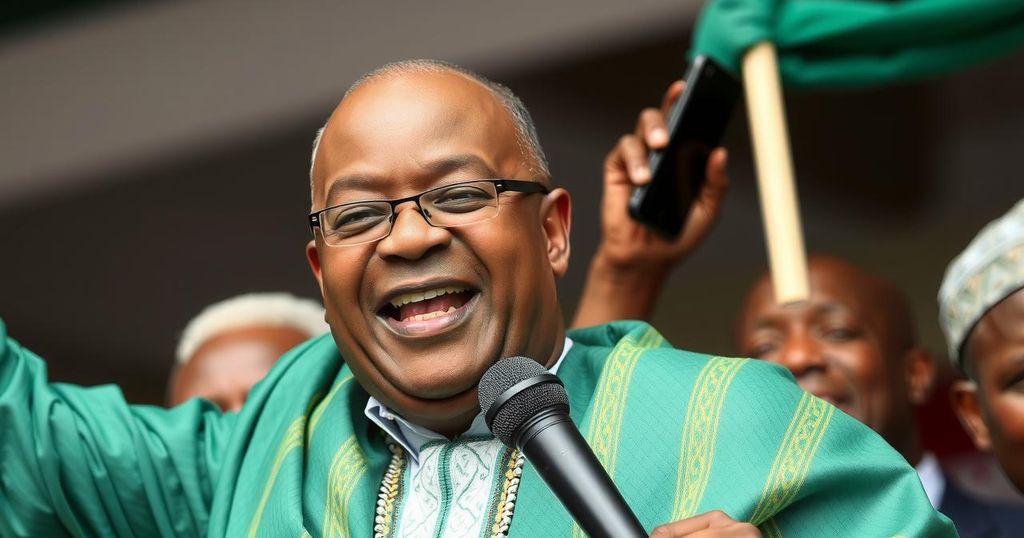John Mahama Wins Presidential Election in Ghana, Signaling Call for Change
Former Ghanaian President John Mahama has won the presidential election, defeating Vice President Mahamudu Bawumia, who conceded and congratulated Mahama for his victory. This election reflects a significant public demand for change amidst economic challenges facing the country. Mahama’s plans include tackling corruption and addressing socio-political issues, marking a historic return to power after previously losing the presidency.
Former President John Dramani Mahama of Ghana has emerged victorious in a recent presidential election, defeating current Vice President Mahamudu Bawumia. Following the election results, Vice President Bawumia conceded defeat and congratulated Mahama, stating, “The people of Ghana have spoken, the people have voted for change at this time and we respect it with all humility.” Mahama’s win, with an estimated 56.3 percent of the vote according to his party’s review, marks a significant political shift, ending the New Patriotic Party’s (NPP) two-term governance and aligning with widespread calls for change following the country’s economic challenges.
Bawumia’s concession signified a momentous shift in Ghana’s political landscape. The governing NPP, under President Nana Akufo-Addo, faced intense scrutiny due to mounting issues such as high inflation and concerns over national debt, which have prompted significant public dissatisfaction. Mahama’s campaign promises included a commitment to combat corruption through enhanced scrutiny of government procurement processes which have been criticized as a source of malfeasance.
Additionally, Mahama’s stance on contemporary issues such as support for the anti-LGBTQ bill passed by parliament earlier this year reflects his influence on both social and political arenas in Ghana. As celebrations erupted from his supporters in Accra, Mahama’s victory is historic, making him the first individual to reclaim the presidency after previously being ousted since Ghana’s return to multi-party democracy in 1992, thus setting the stage for diverse national priorities moving forward. Official election results are anticipated shortly from the electoral commission, but indications already favor a significant shift in Ghana’s political direction.
The recent presidential election in Ghana marks a pivotal moment in the nation’s politics, reflecting a desire for change among the electorate. John Dramani Mahama, of the National Democratic Congress (NDC), has returned to power after previously serving from 2012 to 2017, which positions him uniquely given the current socio-economic climate. The election also highlights the broader socio-political dynamics within the country, particularly in the context of widespread economic challenges that have compelled voters to reconsider their leadership choices. With a history of alternating governance between the NPP and NDC since 1992, this election symbolizes a broader trend toward change in leadership amidst pressing national issues.
In conclusion, the election victory of John Dramani Mahama signifies a decisive call for change amongst the Ghanaian populace, challenging the status quo established by the governing NPP. As Mahama prepares to address the country’s economic hardships and corruption issues through proposed reforms, his leadership may redefine the political landscape in Ghana. Mahama’s ability to engage with younger voters and address their concerns could be crucial in shaping the future trajectory of Ghana’s governance. The forthcoming official election results are set to confirm the full scope of this political shift.
Original Source: www.aljazeera.com




Post Comment